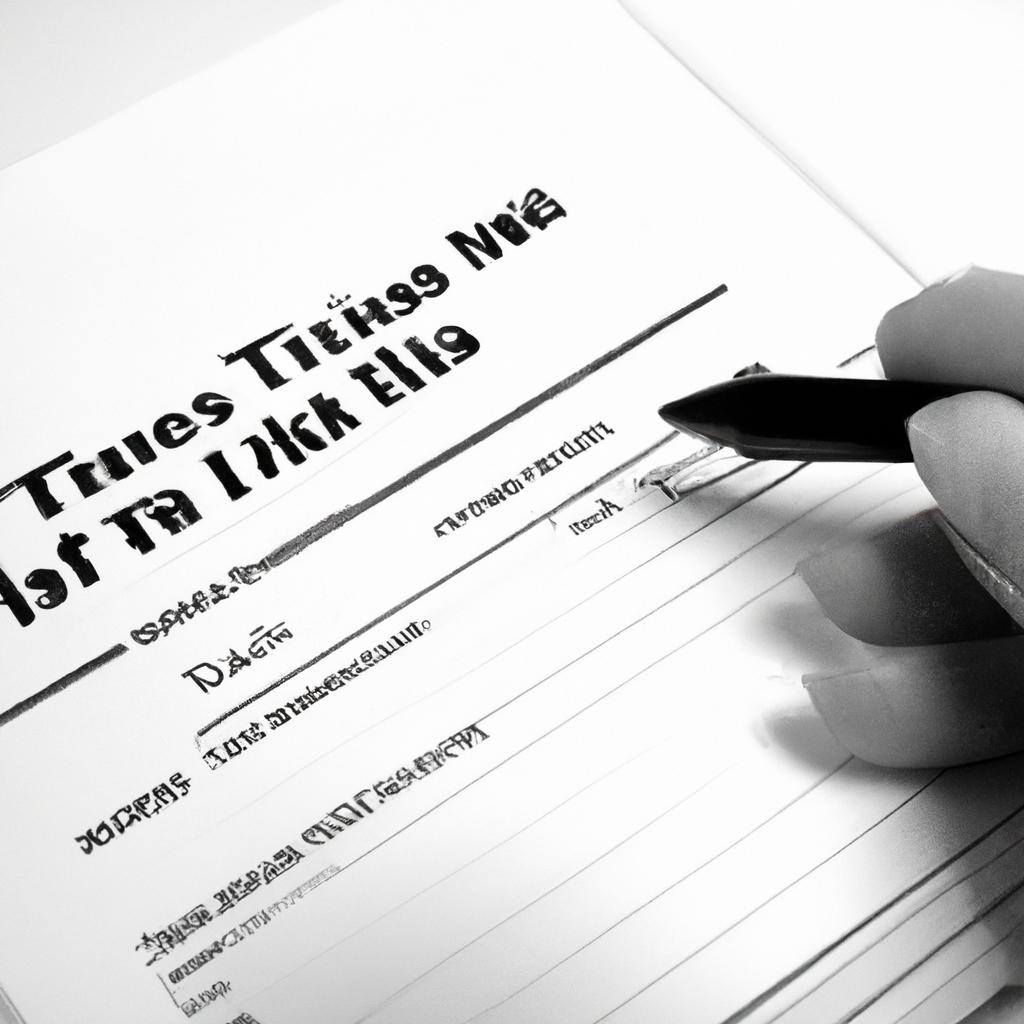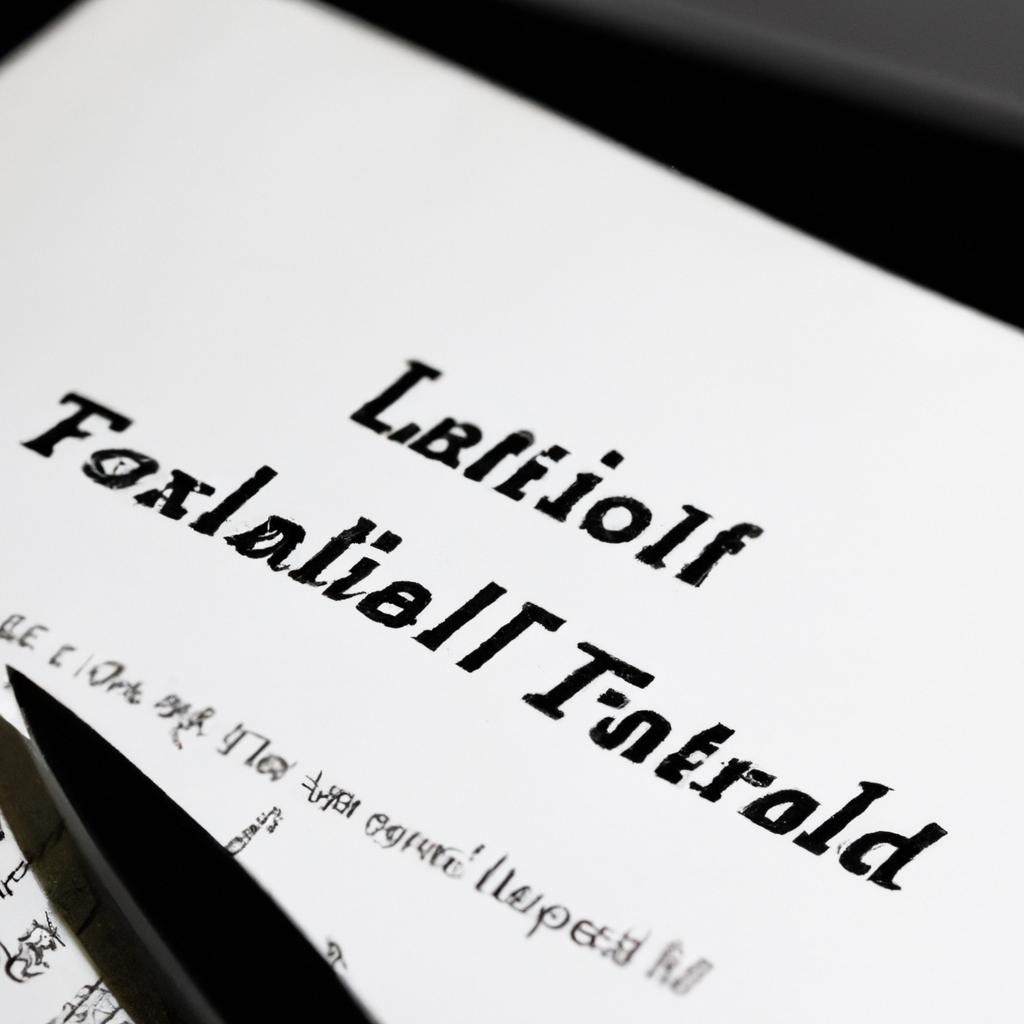Navigating the complexities of filing taxes for a deceased individual can be a daunting task. Failure to properly address this obligation can result in significant legal consequences. As experienced attorneys at Morgan Legal Group in New York City, we understand the importance of fulfilling tax obligations for a deceased person to avoid potential penalties and legal issues. In this article, we will delve into the implications of not filing taxes for a deceased individual and provide guidance on how to handle this situation effectively.
What are the consequences of not filing taxes for a deceased individual?
When a person passes away, their tax responsibilities do not disappear. Failing to file taxes for a deceased individual can have serious consequences, both for the deceased person’s estate and for their beneficiaries. It is essential to handle tax matters promptly and accurately to avoid potential legal issues.
Some of the consequences of not filing taxes for a deceased individual include:
- Penalties and interest: The IRS may impose penalties and interest for late or non-filing of taxes, which can quickly accumulate and add to the tax liability.
- Loss of tax refunds: Failing to file taxes means that any potential tax refunds owed to the deceased individual or their estate may be lost.
- Legal complications: Not filing taxes can lead to legal complications, including audits, fines, and potential legal actions from the IRS.

IRS guidelines on filing taxes for a deceased person
When it comes to filing taxes for a deceased person, it is crucial to follow the guidelines set by the IRS to avoid any potential legal issues. Failure to file taxes for a deceased person can result in penalties and fines, as well as complications with the estate settlement process. The IRS requires that the deceased person’s final tax return be filed, as well as any additional estate tax returns that may be necessary.
It is important to consult with a qualified estate planning attorney or tax professional to ensure that all necessary tax documents are filed correctly and on time. This will help to prevent any delays or legal problems in the future. By following the , you can ensure that the estate is handled properly and that all tax obligations are met.

Potential legal implications for failing to file taxes for a deceased loved one
When a loved one passes away, there are many responsibilities that fall on the shoulders of their family and loved ones. One crucial task that cannot be overlooked is filing their final tax return. Failing to file taxes for a deceased person can have potential legal implications that could create more stress and complications during an already difficult time.
Here are some of the :
- Penalties and Interest: The IRS may impose penalties and interest for late filing of taxes, which can accumulate quickly if not addressed promptly.
- Liability: Family members and executors could be held personally liable for any unpaid taxes of the deceased individual.
- Legal Action: The IRS has the authority to take legal action, including seizing assets, against those who fail to file taxes for a deceased person.
 professional legal advice in handling tax matters for deceased individuals”>
professional legal advice in handling tax matters for deceased individuals”>
Importance of seeking professional legal advice in handling tax matters for deceased individuals
When handling tax matters for deceased individuals, seeking professional legal advice is crucial to ensure compliance with tax laws and regulations. Failure to file taxes for a deceased person can have serious consequences, including penalties and legal issues. By consulting with a knowledgeable attorney, you can navigate the complexities of tax laws and minimize the risk of facing financial and legal consequences.
Professional legal advice can help you understand the following key aspects in handling tax matters for deceased individuals:
- Legal Obligations: Ensuring that all necessary tax returns are filed in a timely manner.
- Asset Valuation: Properly valuing and reporting the assets of the deceased individual for tax purposes.
- Estate Tax Planning: Developing strategies to minimize estate taxes and maximize the value of the estate for beneficiaries.
Q&A
Q: What happens if you don’t file taxes for a deceased person?
A: Failing to file taxes for a deceased person can lead to a variety of consequences, including potential financial penalties and legal issues. It is important to ensure that all tax obligations are met in a timely manner, even after someone has passed away.
Final Thoughts
In conclusion, failing to file taxes on behalf of a deceased individual can have serious consequences, both financially and legally. It is important to ensure that all tax obligations are taken care of, even after someone has passed away. By following the appropriate procedures and seeking professional guidance if needed, you can avoid any potential complications and ensure that the deceased person’s affairs are properly handled. Remember, when it comes to taxes, it’s always better to be safe than sorry.
 As a responsible adult, it is our duty to ensure that all our financial obligations are met, even after our passing. This includes filing taxes for a deceased person. However, in the midst of dealing with the loss of a loved one, it can be easy to overlook this crucial responsibility. But what happens if you don’t file taxes for a deceased person? In this article, we will discuss the potential consequences and implications of not filing taxes for a deceased individual and provide valuable information to help guide you through this process.
As a responsible adult, it is our duty to ensure that all our financial obligations are met, even after our passing. This includes filing taxes for a deceased person. However, in the midst of dealing with the loss of a loved one, it can be easy to overlook this crucial responsibility. But what happens if you don’t file taxes for a deceased person? In this article, we will discuss the potential consequences and implications of not filing taxes for a deceased individual and provide valuable information to help guide you through this process.
First and foremost, it is important to understand that the filing of taxes for a deceased person is not optional. It is a legal requirement that must be fulfilled, just like any other tax obligation. Whether the deceased was an individual or a business entity, their tax obligations do not cease with their passing. In fact, the Internal Revenue Service (IRS) has specific guidelines and procedures in place for filing taxes on behalf of a deceased person.
Now, you may be wondering why filing taxes for a deceased person is necessary. After all, they are no longer with us, and their assets and income may have been distributed to heirs or beneficiaries. However, the key reason for this requirement is to settle any outstanding tax obligations of the deceased. If taxes were not filed or paid, the IRS may not be aware of the deceased’s full financial situation, and this could result in penalties and back taxes for the estate.
So, what happens if you don’t file taxes for a deceased person? Let’s take a closer look at some of the potential consequences:
1. Hefty Fines and Penalties
If taxes are not filed for the deceased, the IRS has the authority to charge hefty fines and penalties. These penalties can range from late filing fees to interest charges on the taxes owed. Moreover, since there is no statute of limitations for unpaid taxes, these penalties can accumulate over time and become a significant financial burden for the estate.
2. Increased Scrutiny from the IRS
Failure to file taxes for a deceased person may also raise a red flag with the IRS, leading to increased scrutiny of the estate’s financial records. This could result in audits and investigations, which can be a time-consuming and arduous process for the estate’s executor or administrator.
3. Delay in Distributing Assets
Filing taxes for a deceased person is a crucial step in settling their estate. If taxes are not filed in a timely manner, it can delay the distribution of assets to the beneficiaries. This can also lead to disputes and legal issues among family members, causing further strain during an already difficult time.
4. Risk of Personal Liability
Another potential consequence of not filing taxes for a deceased person is the risk of personal liability for the executor or administrator of the estate. If they failed to fulfill their duty to file taxes, they may be held personally responsible for any unpaid taxes or penalties.
Now that we have discussed the potential consequences of not filing taxes for a deceased person, let’s explore the steps that need to be taken to fulfill this obligation.
1. Determine Filing Requirements
The first step in the process is to determine if there is a need to file taxes for the deceased person. This will depend on their income and assets at the time of their passing. If their income exceeds a certain threshold or if they had assets that generated income, such as rental properties, stocks, or retirement accounts, then their estate may need to file taxes.
2. Obtain Necessary Documents
The executor or administrator of the estate will need to gather all relevant financial documents, such as the deceased’s W2s, 1099s, bank statements, and investment statements, to prepare their tax return. They may also need to obtain a tax ID number for the estate, which can be obtained from the IRS.
3. File a Final Tax Return
The executor or administrator of the estate will need to file a final individual tax return on behalf of the deceased, which will cover the period from January 1st of the year of their passing until the date of their death. This return will need to be filed by the individual’s regular tax filing deadline.
4. File an Estate Tax Return
If the deceased’s estate has a substantial amount of assets or generated income, the executor or administrator may also need to file an estate tax return. This return reports the estate’s income and calculates any taxes owed.
In conclusion, it is imperative to file taxes for a deceased person to avoid potential consequences and to fulfill our legal obligations. If you are unsure about the filing requirements or need assistance with this process, it is best to seek the guidance of a tax professional or an estate attorney. They can provide valuable insights and ensure that all necessary steps are taken to fulfill this crucial responsibility. Remember, filing taxes for a deceased person is not only necessary to settle their financial obligations but also to provide closure and peace of mind for their loved ones during a difficult time.




